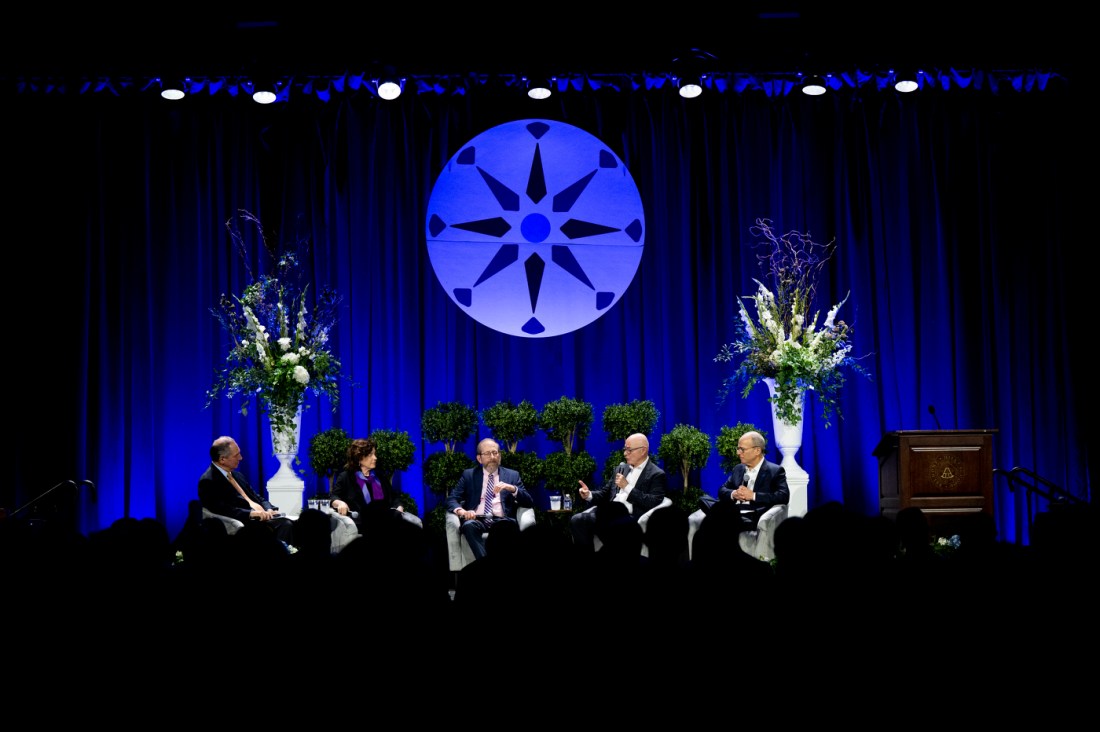 Northeastern University President Joseph E. Aoun joined the presidents of Harvard University and Williams College to discuss higher education. Photo by Matthew Modoono/Northeastern University
Northeastern University President Joseph E. Aoun joined the presidents of Harvard University and Williams College to discuss higher education. Photo by Matthew Modoono/Northeastern UniversityNortheastern University President Joseph E. Aoun joined the presidents of Harvard and Williams College on Tuesday for a wide-ranging panel discussion on how higher education must rethink its role in society amid rapid technological, political and cultural change.
One of the most urgent forces driving that shift, Aoun argued, is artificial intelligence.
“In a world where AI is becoming more and more powerful, what is the purpose of education?” Aoun asked during the International Boys’ School Coalition’s 2025 Conference at Belmont Hill School.
“It’s certainly not going to be to prepare you for your first job, because first jobs, incidentally, are disappearing,” Aoun continued. “It’s going to prepare you for life — If we become the go-to place for all your needs throughout your lives as citizens, then we are rebuilding the social compact between higher education and society.”
Harvard President Alan Garber concurred, calling out Aoun’s book, “Robot-Proof: Higher Education in the Age of Artificial Intelligence.”
“Let me just say that the idea of preparing people for their first job after they graduate college is probably wrong, and this is one of your messages,” Garber said. “We need to prepare our students with the ability to be flexible and able to pursue multiple careers over their lifetime.”
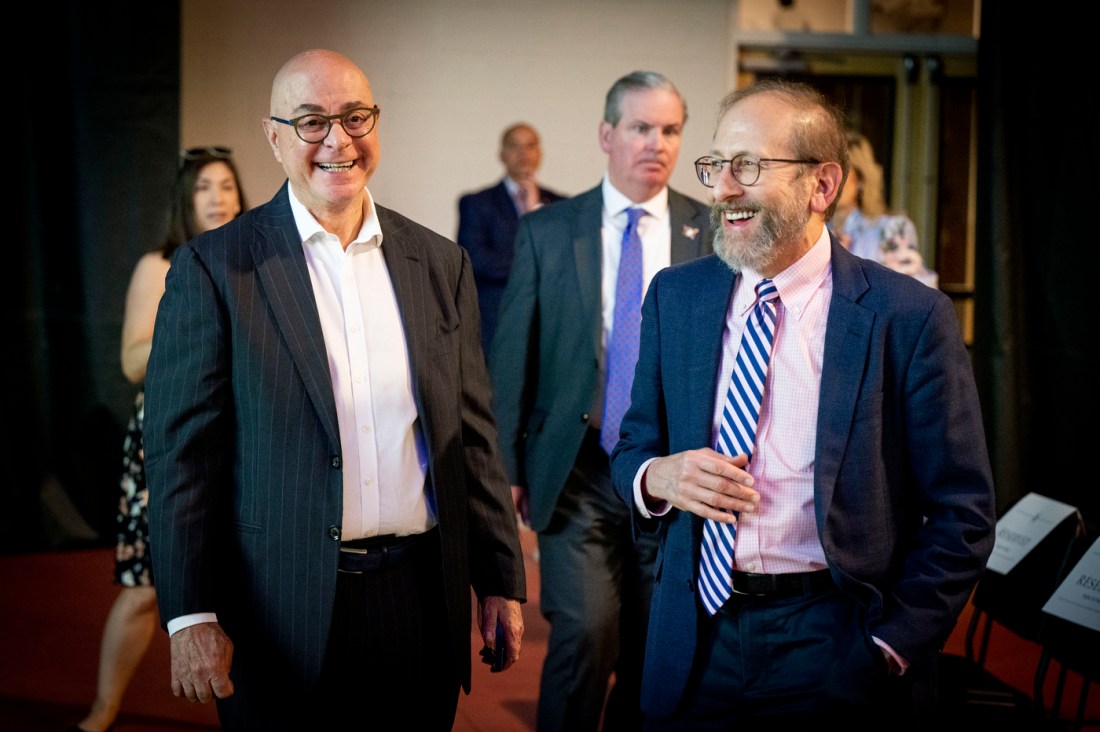 06/24/25 – BELMONT MA. – Northeastern President Joseph E. Aoun speaks during the International Boys School Coalition 2025 Higher Education conference, held at Belmont Hill School on June 24, 2025. Photo by Matthew Modoono/Northeastern University
06/24/25 – BELMONT MA. – Northeastern President Joseph E. Aoun speaks during the International Boys School Coalition 2025 Higher Education conference, held at Belmont Hill School on June 24, 2025. Photo by Matthew Modoono/Northeastern University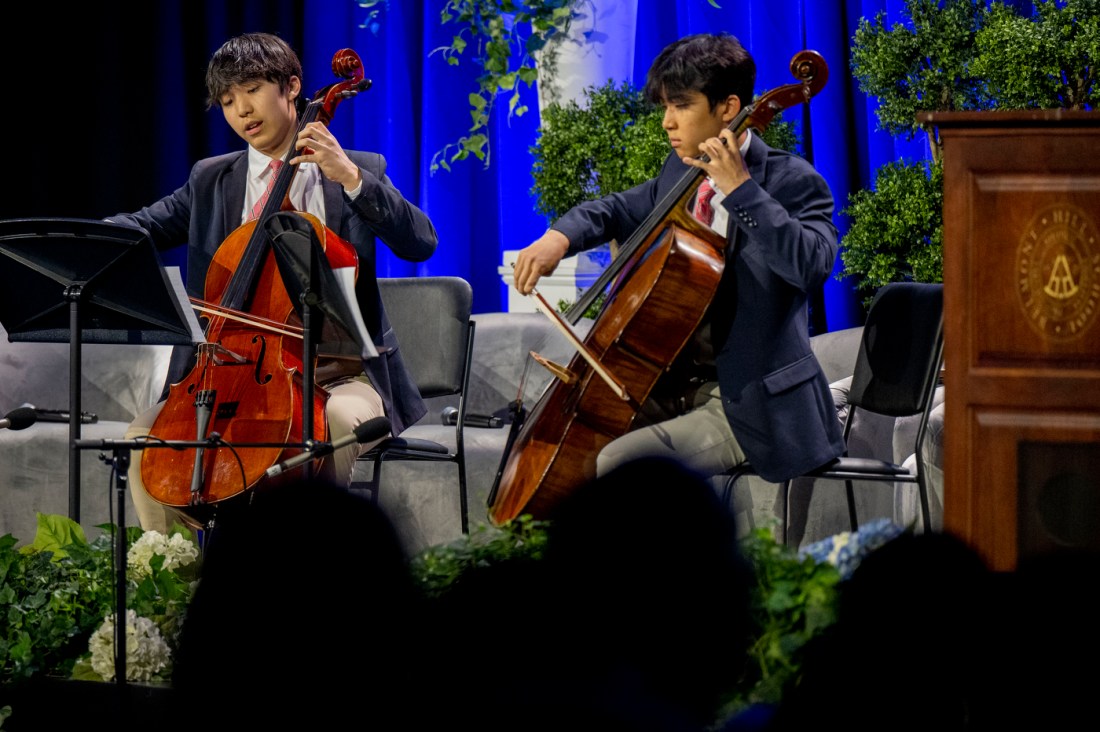 06/24/25 – BELMONT MA. – Northeastern President Joseph E. Aoun speaks during the International Boys School Coalition 2025 Higher Education conference, held at Belmont Hill School on June 24, 2025. Photo by Matthew Modoono/Northeastern University
06/24/25 – BELMONT MA. – Northeastern President Joseph E. Aoun speaks during the International Boys School Coalition 2025 Higher Education conference, held at Belmont Hill School on June 24, 2025. Photo by Matthew Modoono/Northeastern University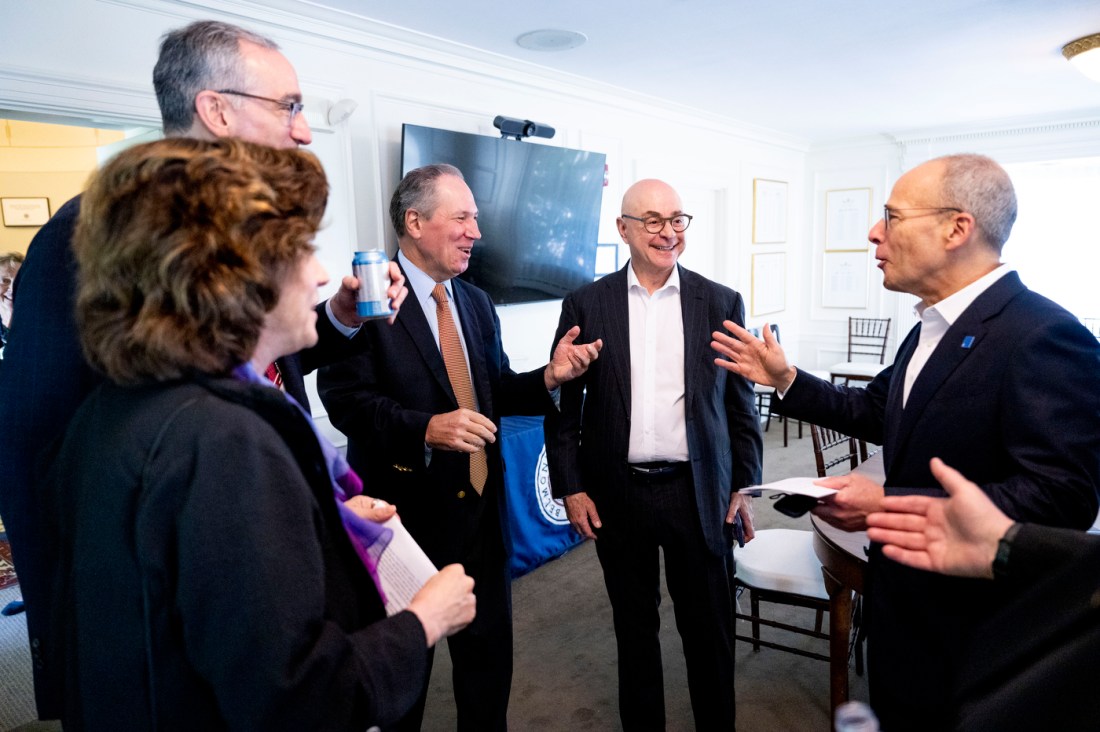 06/24/25 – BELMONT MA. – Northeastern President Joseph E. Aoun speaks during the International Boys School Coalition 2025 Higher Education conference, held at Belmont Hill School on June 24, 2025. Photo by Matthew Modoono/Northeastern University
06/24/25 – BELMONT MA. – Northeastern President Joseph E. Aoun speaks during the International Boys School Coalition 2025 Higher Education conference, held at Belmont Hill School on June 24, 2025. Photo by Matthew Modoono/Northeastern University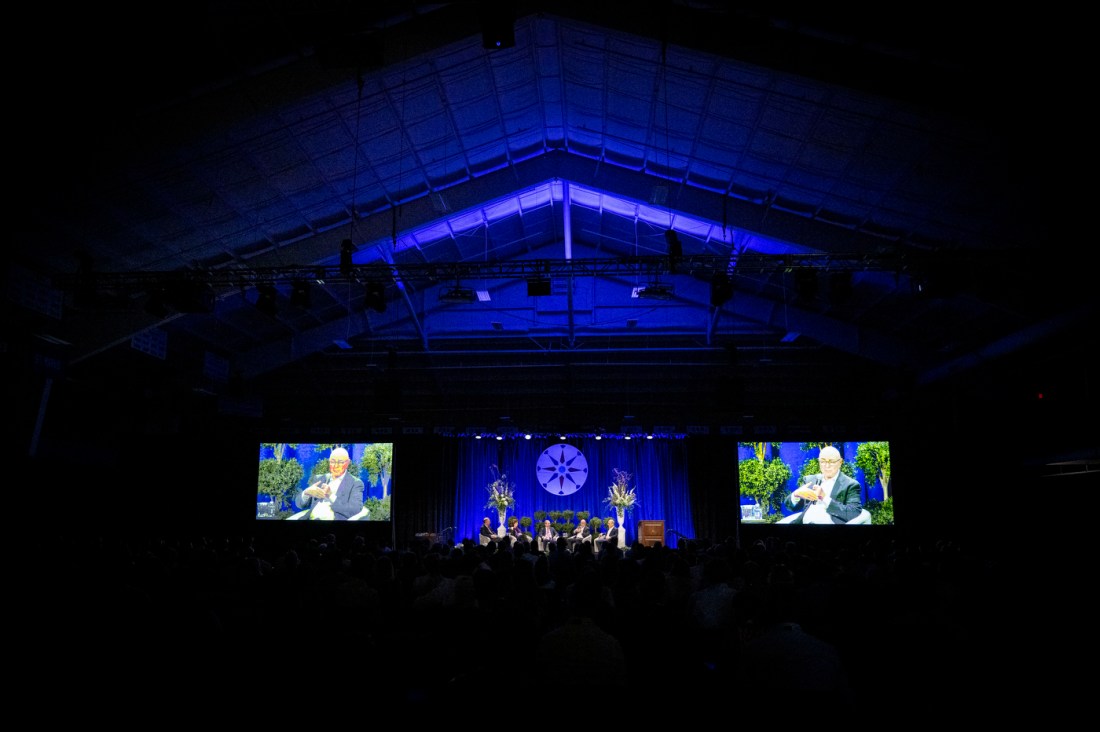 06/24/25 – BELMONT MA. – Northeastern President Joseph E. Aoun speaks during the International Boys School Coalition 2025 Higher Education conference, held at Belmont Hill School on June 24, 2025. Photo by Matthew Modoono/Northeastern University
06/24/25 – BELMONT MA. – Northeastern President Joseph E. Aoun speaks during the International Boys School Coalition 2025 Higher Education conference, held at Belmont Hill School on June 24, 2025. Photo by Matthew Modoono/Northeastern University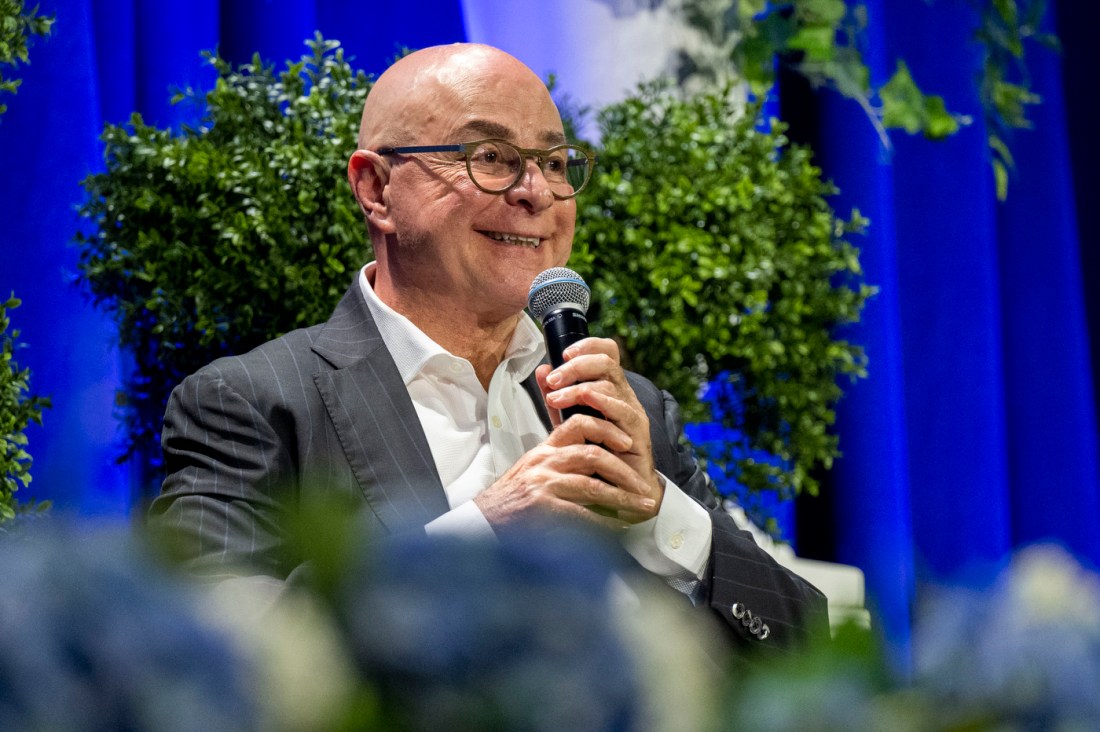 06/24/25 – BELMONT MA. – Northeastern President Joseph E. Aoun speaks during the International Boys School Coalition 2025 Higher Education conference, held at Belmont Hill School on June 24, 2025. Photo by Matthew Modoono/Northeastern University
06/24/25 – BELMONT MA. – Northeastern President Joseph E. Aoun speaks during the International Boys School Coalition 2025 Higher Education conference, held at Belmont Hill School on June 24, 2025. Photo by Matthew Modoono/Northeastern UniversityMaud Mandel, president of Williams College, also praised flexibility and emphasized the transferable skills offered by a liberal arts education.
“What our students need to be able to do — what grown ups need to be able to do — is constantly retool and solve new problems and collaborate and work together as human beings in teams,” Mandel said.
The three presidents touched on a wide range of topics affecting higher education — including the critical role of international students, the importance of viewpoint diversity and the future of learning in an AI-driven world.
The panel was moderated by Belmont Hill graduates Carl Martignetti, president of Martignetti Companies, and Jonathan Kraft, president of the Kraft Group, which owns the New England Patriots.
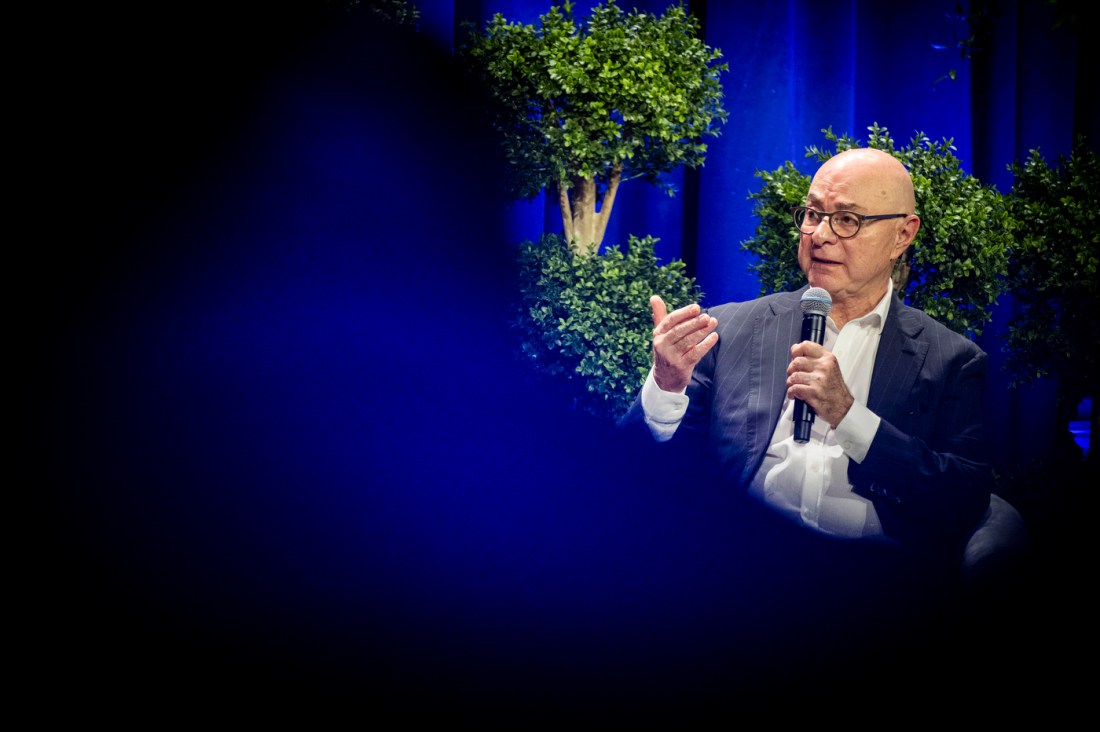 06/24/25 – BELMONT MA. – Northeastern President Joseph E. Aoun speaks during the International Boys School Coalition 2025 Higher Education conference, held at Belmont Hill School on June 24, 2025. Photo by Matthew Modoono/Northeastern University
06/24/25 – BELMONT MA. – Northeastern President Joseph E. Aoun speaks during the International Boys School Coalition 2025 Higher Education conference, held at Belmont Hill School on June 24, 2025. Photo by Matthew Modoono/Northeastern University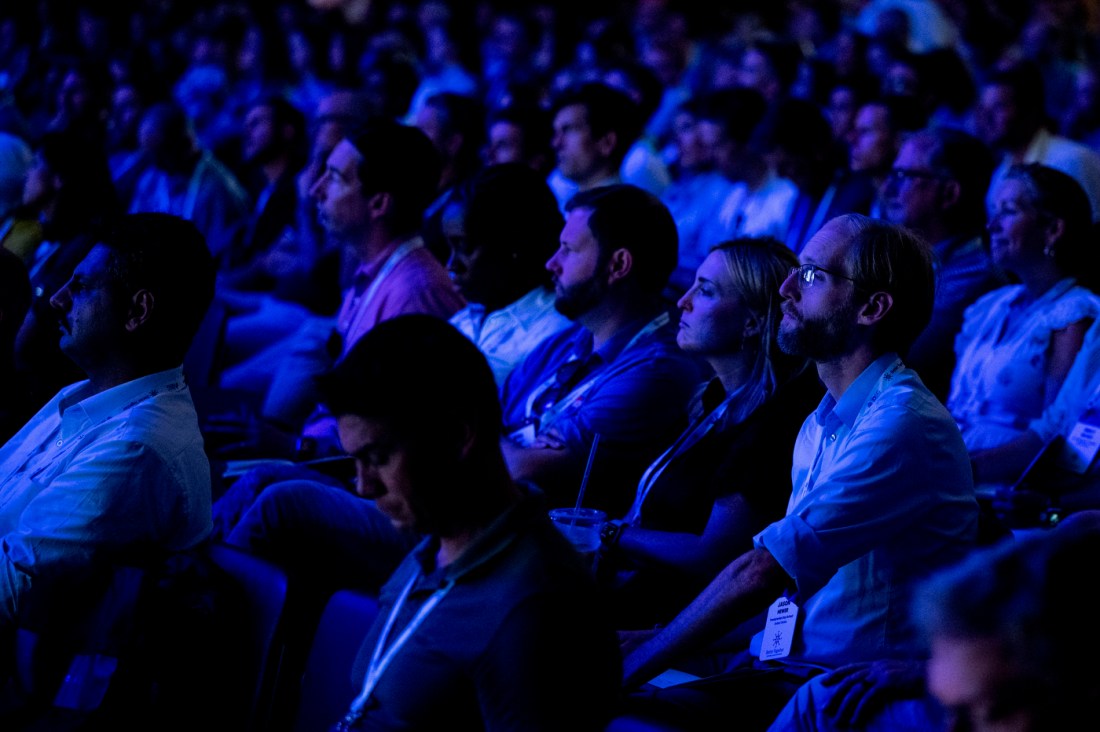 06/24/25 – BELMONT MA. – Northeastern President Joseph E. Aoun speaks during the International Boys School Coalition 2025 Higher Education conference, held at Belmont Hill School on June 24, 2025. Photo by Matthew Modoono/Northeastern University
06/24/25 – BELMONT MA. – Northeastern President Joseph E. Aoun speaks during the International Boys School Coalition 2025 Higher Education conference, held at Belmont Hill School on June 24, 2025. Photo by Matthew Modoono/Northeastern UniversityThe presidents agreed that now is a pivotal moment for higher education leadership.
Aoun noted that the post-World War II compact between higher education and society — in which colleges and universities received nonprofit status, federal research funding and financial aid support in exchange for educating citizens and advancing knowledge — is becoming frayed.
Add in the revolution of AI and its impact on employment and society, and Aoun said the compact must be rebuilt.
“I think what happened over the years is that people started looking — for various reasons, including cost, including politics, etc. — at this compact and began saying, ‘Wait, I’m not getting what I got before,’” Aoun said. “We in higher education didn’t do a good job collectively of explaining the value of what our institutions do.”
Society, the media, students and families are also questioning the value of advanced degrees, the presidents said. And although Garber emphasized that completing a college degree “continues to be a great investment,” he cited data showing that trust in all U.S. institutions has declined.
“There’s the logical question, if your faculty and your students don’t represent the range of views in the general population, are you effectively engaging with the problems that the rest of the population thinks are important?” Garber asked.
Aoun added that just 30% of the U.S. population now trusts higher education.
“Everything we say is amplified and looked at through this prism, which means now that we have to look at the issue of trust and how we rebuild trust with society,” Aoun said.
Mandel emphasized the importance of courage, empathy and “deep, deep listening skills” in classroom instruction — especially amid the difficult conversations taking place on campuses and the social pressures that challenge those values.
“Those are the things that are best served, at least in the kind of environment that I work in, in the classroom,” Mandel said. “That’s actually where we can teach that the best, I deeply believe, from years in higher education — but I think there are strong social forces that have been pushing against it, some of which are from our institutions, and some of which are actually from outside of our institutions.”
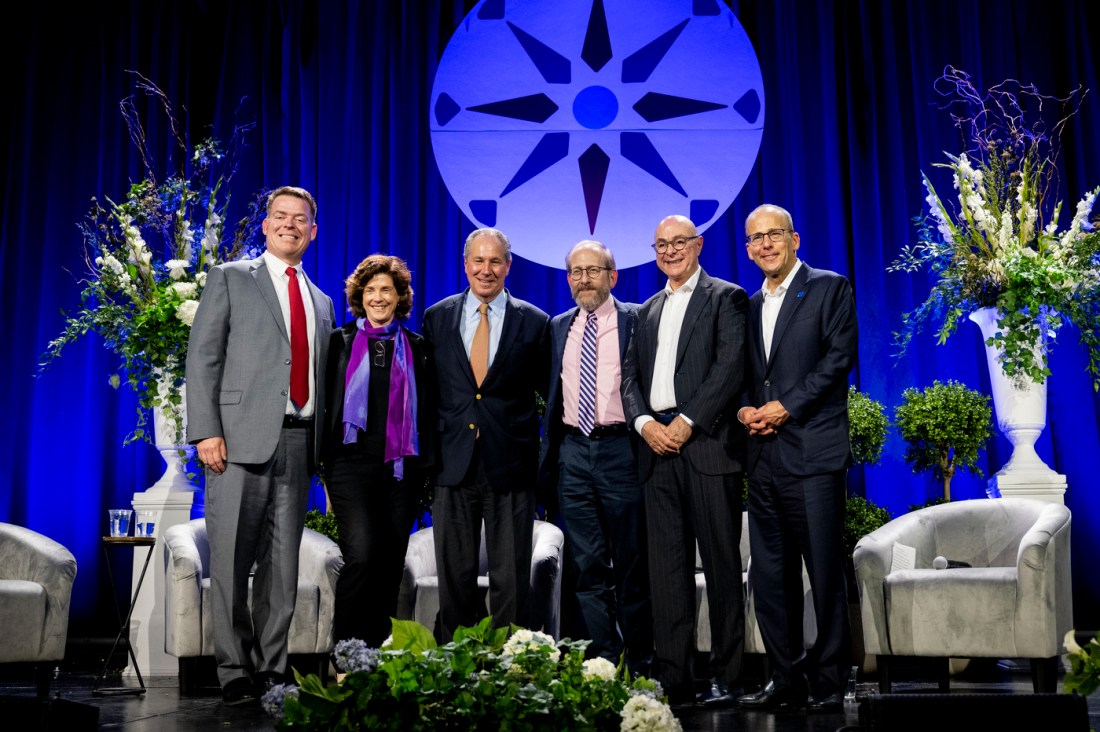 06/24/25 – BELMONT MA. – Northeastern President Joseph E. Aoun speaks during the International Boys School Coalition 2025 Higher Education conference, held at Belmont Hill School on June 24, 2025. Photo by Matthew Modoono/Northeastern University
06/24/25 – BELMONT MA. – Northeastern President Joseph E. Aoun speaks during the International Boys School Coalition 2025 Higher Education conference, held at Belmont Hill School on June 24, 2025. Photo by Matthew Modoono/Northeastern University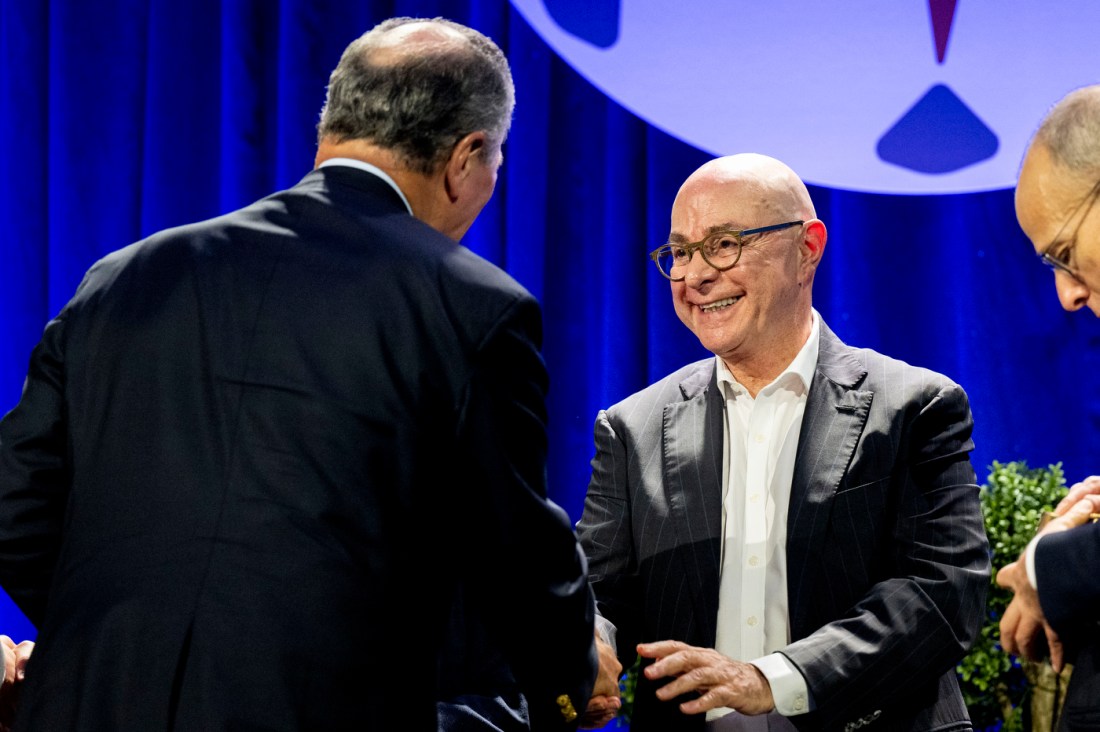 06/24/25 – BELMONT MA. – Northeastern President Joseph E. Aoun speaks during the International Boys School Coalition 2025 Higher Education conference, held at Belmont Hill School on June 24, 2025. Photo by Matthew Modoono/Northeastern University
06/24/25 – BELMONT MA. – Northeastern President Joseph E. Aoun speaks during the International Boys School Coalition 2025 Higher Education conference, held at Belmont Hill School on June 24, 2025. Photo by Matthew Modoono/Northeastern University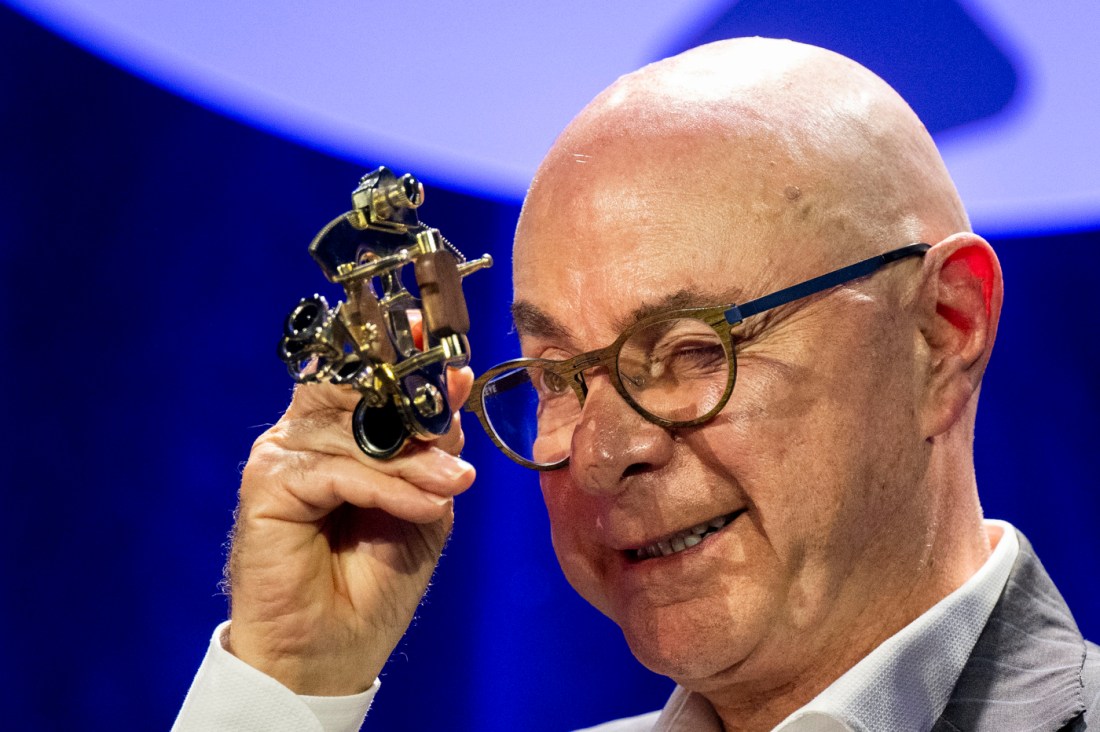 06/24/25 – BELMONT MA. – Northeastern President Joseph E. Aoun speaks during the International Boys School Coalition 2025 Higher Education conference, held at Belmont Hill School on June 24, 2025. Photo by Matthew Modoono/Northeastern University
06/24/25 – BELMONT MA. – Northeastern President Joseph E. Aoun speaks during the International Boys School Coalition 2025 Higher Education conference, held at Belmont Hill School on June 24, 2025. Photo by Matthew Modoono/Northeastern University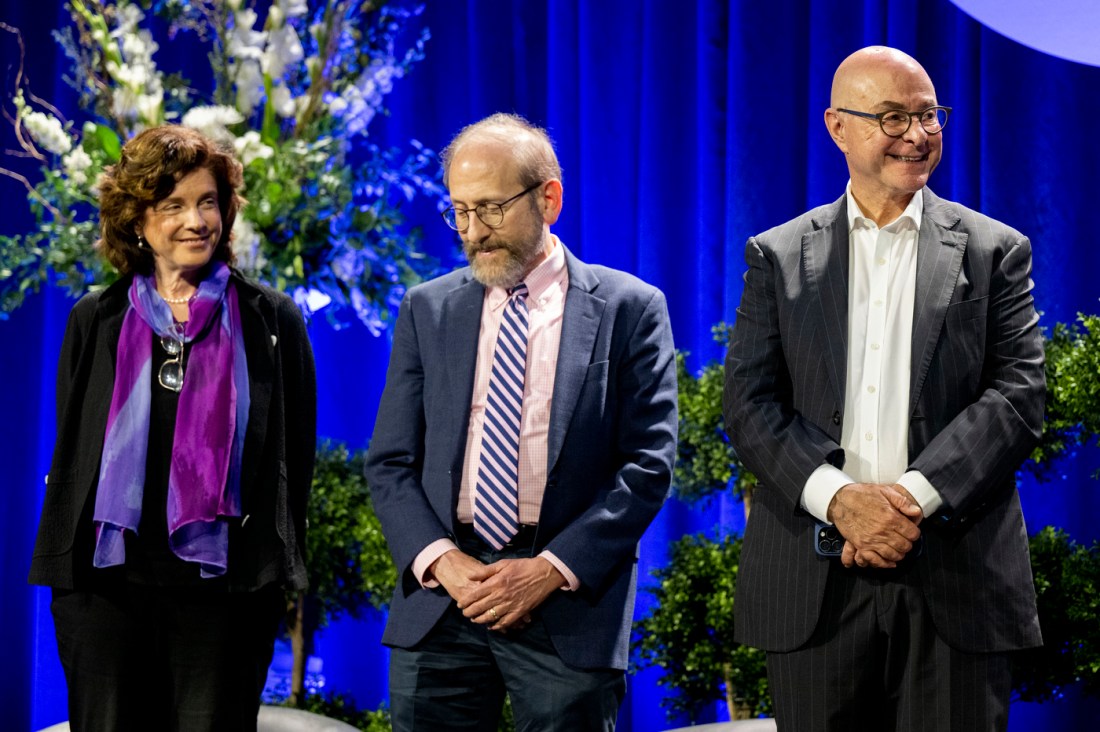 06/24/25 – BELMONT MA. – Northeastern President Joseph E. Aoun speaks during the International Boys School Coalition 2025 Higher Education conference, held at Belmont Hill School on June 24, 2025. Photo by Matthew Modoono/Northeastern University
06/24/25 – BELMONT MA. – Northeastern President Joseph E. Aoun speaks during the International Boys School Coalition 2025 Higher Education conference, held at Belmont Hill School on June 24, 2025. Photo by Matthew Modoono/Northeastern University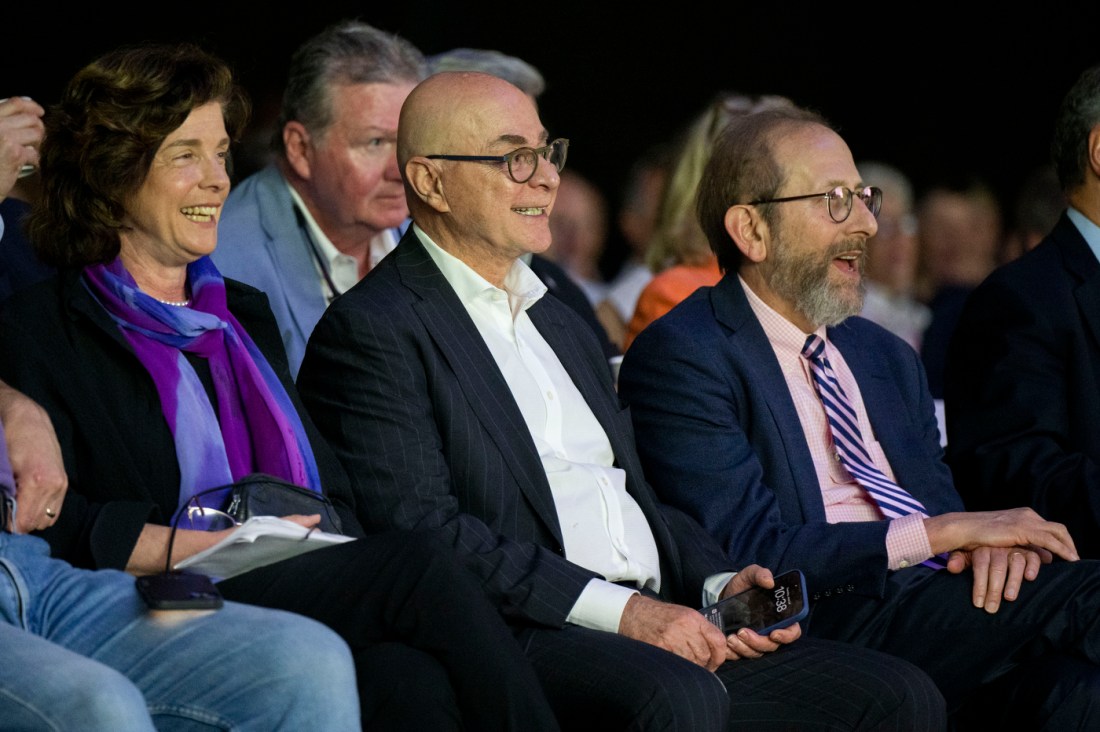 06/24/25 – BELMONT MA. – Northeastern President Joseph E. Aoun speaks during the International Boys School Coalition 2025 Higher Education conference, held at Belmont Hill School on June 24, 2025. Photo by Matthew Modoono/Northeastern University
06/24/25 – BELMONT MA. – Northeastern President Joseph E. Aoun speaks during the International Boys School Coalition 2025 Higher Education conference, held at Belmont Hill School on June 24, 2025. Photo by Matthew Modoono/Northeastern UniversitySo, how should higher education respond?
Mandel said institutions must lean into “core principles” and the power of the classroom.
“I believe very much in the (classroom) environment as one where you bring people together to question assumptions,” Mandel said. “I really believe that gifted, well trained educators should be able to teach a broad range of people from a diverse range of points of view, perspectives and backgrounds, no matter what they themselves believe and think.”
Northeastern Global News, in your inbox.
Sign up for NGN’s daily newsletter for news, discovery and analysis from around the world.

Garber argued that higher education must overcome “an inhibition about speaking freely” and stop associating disagreement with personal identity.
“By that, what I mean is that if you attack what I say, you’re attacking my identity, or I’m more comfortable speaking with people who share my identity,” Garber explained. “In any college or university, this inhibition about speaking freely about sensitive topics actually puts a damper on the ability to teach — faculty are afraid to say the wrong thing in the classroom — to learn. And for research universities to conduct research, you have to be fearless about expressing what may be unpopular ideas.”
Aoun said that embracing lifelong learning and experiential education — learning context, teamwork, strengths, weaknesses and more — is essential to rebuilding the social compact. He pointed to Northeastern’s global university system, with campuses across the United States, the UK and Canada, as providing a broader view.
“It’s a humbling perspective because — essentially — you have to build the social compact in every locale you are in and, at the same time, people have different expectations and different needs,” Aoun said. “We have to look at society as a whole. We have to look at what we’re doing and how we can rebuild this trust.”



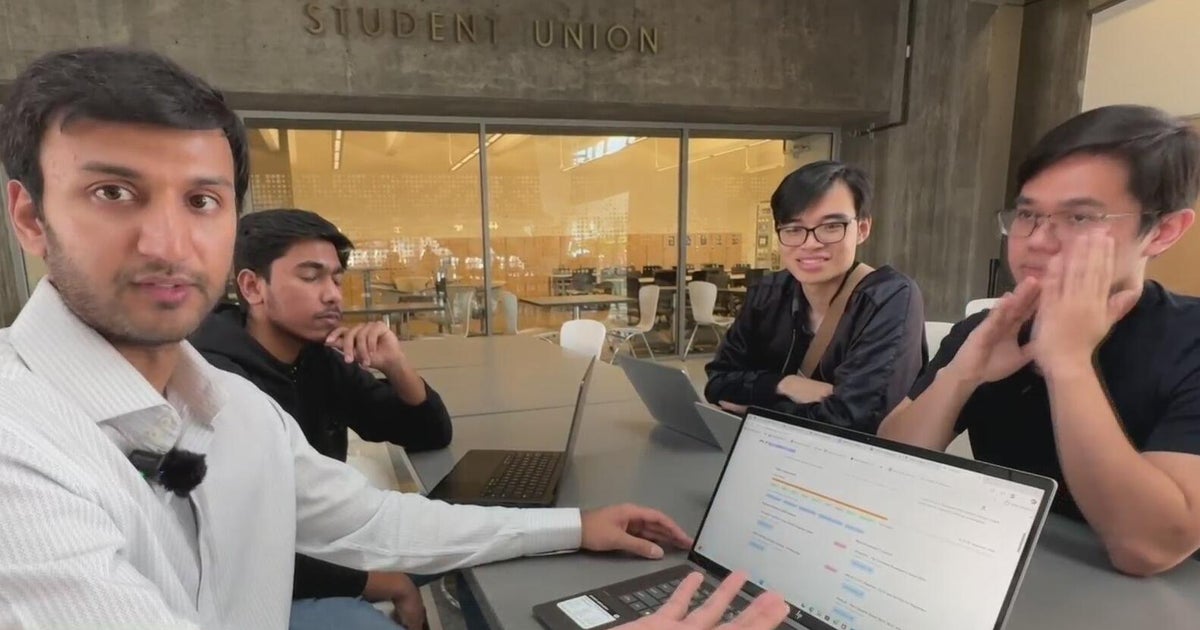




 English (US) ·
English (US) ·